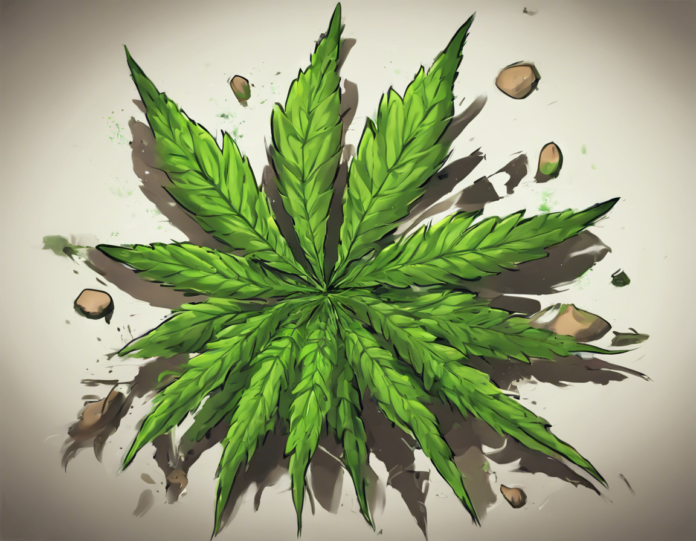Introduction
Doobie weed, also known as marijuana or cannabis, has a long and diverse history with various effects on the human body and mind. From its origins to its impact on health and society, doobie weed remains a controversial topic that continues to spark debates and discussions. In this comprehensive guide, we will explore the origins and effects of doobie weed, shedding light on its evolution, uses, benefits, and drawbacks.
Origins of Doobie Weed
Doobie weed has been cultivated and consumed for thousands of years, with its origins dating back to ancient civilizations. The plant is believed to have originated in Central Asia and eventually spread to other parts of the world, including Europe, Africa, and the Americas. Historically, doobie weed has been used for a variety of purposes, including medicinal, recreational, and spiritual.
One of the earliest recorded uses of doobie weed was in ancient China, where it was used for its medicinal properties. The plant was also valued for its fibers, which were used to make clothing, ropes, and other products. In India, doobie weed has long been associated with spiritual and religious practices, with the plant playing a prominent role in various rituals and ceremonies.
Evolution of Doobie Weed
Over the centuries, the cultivation and consumption of doobie weed have evolved significantly. Advances in breeding and cultivation techniques have led to the development of various strains with different properties and effects. Today, doobie weed is available in a wide range of forms, including dried flowers, concentrates, edibles, and topicals.
The legalization of doobie weed for medical and recreational use in many parts of the world has also contributed to its evolution. As more research is conducted on the plant, its potential uses and benefits are becoming increasingly recognized. From pain relief and anxiety management to insomnia treatment and appetite stimulation, doobie weed offers a range of potential therapeutic applications.
Effects of Doobie Weed on the Body and Mind
Doobie weed exerts its effects on the body and mind through its interaction with the endocannabinoid system, a complex network of receptors and neurotransmitters involved in regulating various physiological processes. The two main active compounds in doobie weed are tetrahydrocannabinol (THC) and cannabidiol (CBD), which have different effects on the body.
THC is the primary psychoactive compound in doobie weed, responsible for the euphoric high that users experience. It interacts with cannabinoid receptors in the brain, affecting mood, memory, coordination, and perception. CBD, on the other hand, is non-psychoactive and has been shown to have various therapeutic properties, including anti-inflammatory, analgesic, and anxiolytic effects.
The effects of doobie weed can vary depending on factors such as the strain, dose, method of consumption, and individual tolerance. Some common effects of doobie weed include euphoria, relaxation, increased appetite, impaired memory, coordination, and judgment, and altered perception. While many people use doobie weed for its recreational and therapeutic benefits, it can also have negative effects, especially when used excessively or by vulnerable populations.
Benefits of Doobie Weed
Despite the controversy surrounding doobie weed, many people believe in its potential benefits for health and well-being. Some of the potential benefits of doobie weed include:
Pain relief: Doobie weed has analgesic properties and is commonly used to alleviate chronic pain conditions, such as arthritis, fibromyalgia, and migraines.
Anxiety management: CBD, a non-psychoactive compound in doobie weed, has been found to have anxiolytic effects, making it a popular choice for those dealing with anxiety and stress.
Sleep aid: Doobie weed is known for its relaxing effects, which can help induce sleep and improve sleep quality for those with insomnia or other sleep disorders.
Appetite stimulation: THC, the psychoactive compound in doobie weed, is known to trigger hunger, making it a valuable treatment for appetite loss in conditions such as cancer and HIV/AIDS.
Nausea relief: Doobie weed has been shown to be effective in reducing nausea and vomiting in cancer patients undergoing chemotherapy.
Drawbacks of Doobie Weed
While doobie weed has its potential benefits, it also comes with drawbacks and risks that should be considered. Some of the drawbacks of doobie weed include:
Psychological effects: In some individuals, doobie weed can exacerbate anxiety, paranoia, and psychosis, especially when used in high doses or by vulnerable individuals.
Memory and cognitive impairment: Chronic use of doobie weed has been associated with memory impairment, cognitive deficits, and reduced motivation.
Respiratory issues: Smoking doobie weed can have negative effects on respiratory health, including chronic cough, bronchitis, and increased risk of lung cancer.
Addiction: While doobie weed is not as addictive as substances like nicotine or opioids, some individuals can develop a dependence on the drug and experience withdrawal symptoms when trying to quit.
Legal ramifications: Despite the increasing legalization of doobie weed, it remains illegal in many parts of the world, leading to potential legal issues for users.
FAQs about Doobie Weed
- Is doobie weed addictive?
-
While doobie weed is not as addictive as some other substances, some individuals can develop a dependence on it, leading to withdrawal symptoms when quitting.
-
Can doobie weed be used for medicinal purposes?
-
Yes, doobie weed has a range of potential therapeutic benefits, including pain relief, anxiety management, and appetite stimulation.
-
What are the different methods of consuming doobie weed?
-
Doobie weed can be consumed in various ways, including smoking, vaping, edibles, tinctures, and topicals.
-
Is it safe to drive after consuming doobie weed?
-
Driving under the influence of doobie weed can impair coordination, judgment, and reaction time, making it unsafe to operate a vehicle.
-
Can doobie weed help with sleep disorders?
- Yes, doobie weed’s relaxing effects can help induce sleep and improve sleep quality for individuals with insomnia or other sleep disorders.
In conclusion, doobie weed is a complex plant with a long history and diverse effects on the human body and mind. While it offers potential benefits for health and well-being, it also comes with drawbacks and risks that should be carefully considered. By understanding the origins and effects of doobie weed, individuals can make informed decisions about its use and explore its potential for both recreational and therapeutic purposes.



